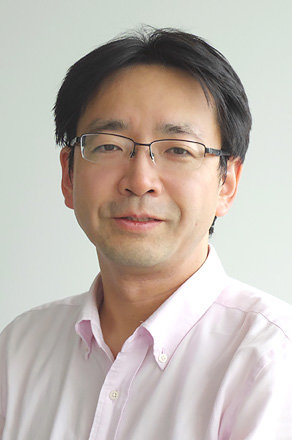
For driving research & development innovation and addressing societal challenges, explore what we can do based on evidence.
Laboratory on Science for Policy
Professor:KOIZUMI Amane
E-mail:
[Research areas]
Science for Policy, Science Communication, Scientometrics, Research and Development Innovation
[Keywords]
University Research Capability, Research Evaluation, Policy Planning, Social Issues, Science Communication, R&D Management
Skills and background we are looking for in prospective students
Having a forward-looking vision is paramount-- knowledge and skills can follow later.
What you can expect to learn in this laboratory
Under the guidance of your own original vision for the future, we encourage you to explore what you seek to understand and what challenges you aim to solve from various perspectives. Together, we will develop logic models to realize these goals, determine what evidence to collect and from where, and decide on appropriate analytical methods. Throughout this process, it is essential to think beyond disciplinary boundaries, embracing a multidisciplinary approach (“Transboundary Thinking and Integrative Capacity”). Furthermore, collaboration across different sectors is crucial (“Engagement and Co-creation”), for which science communication plays a key role (“Communication Competency”).
These skills are indispensable for careers in policymaking, planning, and research management, whether in central or local government agencies, think tanks, university administration, or organizational management. Moreover, these competencies are widely applicable to the fields of medicine and healthcare.
【Job category of graduates】 Central Government Ministries, Local Governments, Think Tanks, Universities, Healthcare Organizations
Research outline
My research and educational activities are grounded in two key aspects: pursuing expertise in medical physiology, my primary academic discipline, and applying this expertise to engage with society through Science for Policy.
Regarding my research in medical physiology, I have been investigating the functions of retinal ganglion cells to elucidate visual information processing mechanisms in the retina, particularly focusing on the concept of “ultra-parallel visual information processing.”
Beyond this specialized research, I examine how to effectively communicate and co-create specialized knowledge with other disciplines (“Science Communication”), exploring ways to transform specialized knowledge into new value from diverse perspectives. Building on this, I engage in “Science for Policy,” investigating how science can contribute to addressing policy, administrative, and societal challenges.
For example, in the evaluation of university research capabilities, I have proposed new quantitative indicators (such as "depth of research impact") and collaborated with government agencies like the Ministry of Education, Culture, Sports, Science and Technology (MEXT), as well as media organizations, to analyze university research performance.
Based on these foundations, our laboratory focuses on three core research objectives:
- Integration of Knowledge and the Emergence of New Academic Disciplines
By collaborating with the field of Knowledge Science, a distinctive strength of JAIST, we aim to integrate diverse forms of knowledge to foster the emergence of new academic fields. This effort will serve as a foundation for creating a novel discipline-- “Science of Human Wisdom.” - Creating New Value Beyond Existing Frameworks Through Collaboration Among Academia, Government, and Society
By expanding collaborations beyond academia to include industry, government, and local communities, we promote policy-driven science and interdisciplinary innovation. - Developing Talent with Transferable Skills
Through these efforts, we nurture professionals with transferable skills, particularly in continuing education for working professionals and the development of PhD-level talent for government and administrative roles.
To achieve these objectives, we prioritize collaboration across fields such as Knowledge Science, Information Science, and Materials Science. By integrating the intelligence (knowledge) of each academic domain, we strive to elevate it into wisdom, ultimately contributing to the development of the “Science of Human Wisdom.”
By fusing knowledge and refining it into wisdom, we aim to establish this as a new academic discipline-- one that encompasses human wisdom.
Key publications
- Neurite arborization and mosaic spacing in the mouse retina require DSCAM, Peter G. Fuerst, Amane Koizumi, Richard H. Masland, Robert W. Burgess, NATURE 451(7177) 470-U8 2008
- Reward research outreach in Japan, Amane Koizumi, Yuko Morita, Shishin Kawamoto, NATURE 500(7460) 29-29 2013
- Substantiality: A Construct Indicating Research Excellence to Measure University Research Performance. Masashi Shirabe, Amane Koizumi. Journal of Data and Information Science, July 25, 76-89, 2021
Teaching policy
Ultimately, the most important factor is having a clear vision for what you want to understand and what you wish to solve in the future. Developing logic models, engaging with diverse stakeholders, and executing your vision with determination will be crucial. We look forward to exploring these possibilities with you.